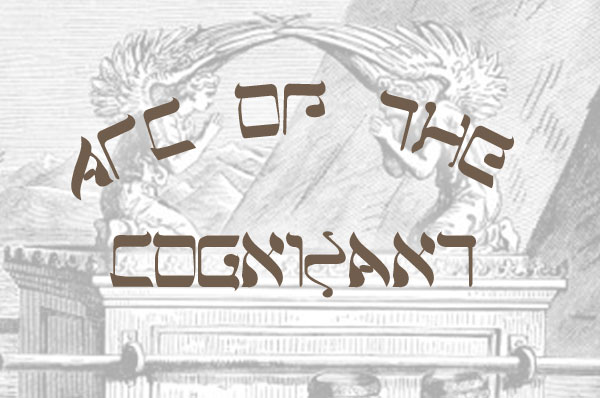What does not kill us makes us...happy?
“What does not kill us makes us ___” Nietzsche
Happiness is a warm gun. Lennon
Everybody knows how to complete the epigraph quoted at the top: “Stronger”. Poor Nietzsche, so many profound things to say, and remembered by masses of slightly-educated people for this one slogan alone.
What makes us more contented, or dare I say it, happier? That is a question far more people want an answer to than the question implied by the worn-out phrase of Nietzsche. After all, this is the season when people are saluting one another with Merry and Happy, right?
Happiness. It is not one of Buddha’s four Noble Truths. “Suffering” is. It is not in the Decalogue. [ a.k.a. Ten Commandments]. Not a word found much in the Tao de Ching of Lao Tzu. The Koran and I Ching aren’t guidebooks to discovering happiness. Neither of the Testaments of the Bible, its older Hebrew or newer Christian parts, pays it much heed – sin and righteousness are the concepts of most prominence there.
But there is one famous document that includes the word prominently: the American Declaration of Independence. Among its self-evident and inalienable rights for humans is the “pursuit of Happiness.” Not happiness, but at least its pursuit, is a human right according to the Western Enlightenment mind of one Thomas Jefferson, the Declaration’s author. And Confucius, the 6th century-BCE sage of China, advises, “The superior person should follow one’s passion [bliss, happiness] – in that way one will never be laboring any day of one’s life.”
From Jefferson and Confucius, one might conclude that happiness is in the journey, the doing of something, not in a static condition. Happiness is not a warm gun, John Lennon, nor any other noun. It is dynamic, not static, and it is not the synonym of joy, either. You know when you feel it, and when you do not, and cannot analyze it.
Alas, I am not going to surpass all the writers who have laid out descriptions, prescriptions, advice and warnings on the subject of happiness, here in one online weekly column. But maybe I can say something useful about being happy and avoiding depression, and connect that to my consistent preoccupation of bringing spiritual qualities to politics.
Politics makes few people happy. OK, “success in politics” might appear to be a path to happiness, as success in any field might appear to offer it. The few who enjoy political activity as most of us enjoy social activity, are pretty rare, I would think. Having your political way, getting your policies enforced while denying other people’s, is at bottom egotistic. Where there are clear winners, there are egos. Only when political process is truly able to deliver partial reward to opposed groups, giving partial win and partial loss, would it be true to say that ego in politics is unimportant. Every reader will have their own take on that question–whether or not politics is a win/lose game.
I myself would say that we are instinctively not inspired to good feelings when we observe politics in action among friends or conducted by the professional political class. We watch a contest of wills, of people trying to be winners and come out on top. Declaring a winner is a situation we accept without dislike in games and sports, but not in political contests. Mostly we learn in this culture to accept the outcome of a game gracefully, win or lose.
Losing in politics is not like losing in sport. The consequences matter too much to shrug off. It is not who wins a championship that is at stake. It is policies that change people’s lives and the lives of other living beings too.
I am constantly wrestling feelings of depression about the state of world politics. Canada is now ruled by a conservative federal regime, and BC by a similar mind-set, one that profoundly undermines many things I hold valuable for good government. I hold my breath till BC changes government next May. But I will take wagers that the Liberals postpone the election. They have the authority to do that. They have the MLAs to win that vote.
Political conservatives assert a positive antipathy to government as a way for us to solve problems. Conservatism indulges hostility to the state as an enemy of freedom that is appealing to people with over-developed senses of individual merit and ability. Conservatives feel free until government governs them, then they feel put upon.
Conservatives see any government, and its personnel and its functions, as something to fight against. They dislike unions on principle also. They might also say they dislike big business corporations, but in practice conservatives do very little to fight capitalism and a lot to fight government. Witness a local battle pitting rural conservatives in RDCK Area E against those who would favour an official community plan. The anti-OCP folk take their stand on principle, and the principle is: liberty. Liberty is threatened by government, they say. They say little, and act even less, to battle the domination of our society, culture, and economy by the awesome power of corporations.
So, I am depressed by politics taking the turn they have since the seventies, when I and my peers on the political left believed the future was going our way. I am an individualist for sure, yet I have abiding confidence in the worth of collective actions, in labour unions and in community efforts, rising above the individual and his private-property “rights.” The identity of person and property is spiritual decay.
I thought socialist democratic evolution was written into the political script for the next few decades after 1970, and when the Viet Nam War was ended, and the pro-war Republican president Richard Nixon was forced to resign, I rejoiced at evidence I was correct. But Margaret Thatcher, Ronald Reagan, and Brian Mulroney were on the horizon and I did not foresee the power of neo-liberal, hyper-capitalist market economics sweeping our globe.
Who can find happiness when their political ideals are in retreat all over? Not I. Or rather, not the “I” whom I once believed was essentially my personal identity. That person wanted victory for the socialist agenda. Its growing list of defeats as Thatcher and Reagan dismantled the state’s welfare safety-net, inflated their military forces and advanced imperial foreign policies against the Soviet Russian empire, was clear to see by 1984. Mulroney gave us free trade, a sell-out to market capitalism and the first step toward the market failures of 2008. The Right is on top. It has lost in some areas: rights and equality for women, people of variant sexual orientations, differently-abled people, have all seen progress. Civil rights for non-whites, and a decrease in racism, is apparent here since the 1970’s. Leftist wins.
Inequality in the material sphere has accelerated; the rich got richer, the poor, poorer, since the late ‘70’s. Poor nations fell so far behind the rich it seems impossible for a global standard of decent living to be attained. India and China have raised up middle classes using neoliberal capitalism, the very system that increases inequity between social classes. Poverty even in rich nations is a near-guaranteed sentence of a very poor life indeed. The failure of compassion by the well-off is rankly manifest; Baby Boomers are the worst offenders as individuals with entitlement to their very good lives. Their response to suffering has been not to return to the socialist ideals of their youth, but to turn inward to the spiritual realm, to embrace pseudo-Buddhism or Taoism, and generally let the corporate agenda rule the world.
Government is one of the few institutions we have to re-balance the unfairness of outcomes demanded by market capitalism. But market capitalism captured the hearts and minds of the egotist, not to say narcissist, baby-boom populations in the rich nations. It infected our minds through the appeal to our hyper-individualism. We love our uniqueness. Such a consciousness is anti-collective by definition.
Government cannot do its work without funds. Funds are taxes. They have been reduced bit by bit since the rise of global neo-liberal politics. Corporations rejoice; individuals too, but less so. Our underfunded systems – infrastructures, health, schooling – deteriorate.
Personally, I am trying to disengage myself from politics. I see it as hopelessly materialist in motive, and I am not hopeful that the materialist ingredients of our being, the imprisonment in matter of the human spirit, will be transcended in it. Spiritual components of the human condition need nurturing. Politics now do not feed my spirit; rather the opposite. I am sure there is a way to engage politics, to be on the losing side of contests, and not be drained. I did not find it. But my own disengagement is not advice to others to disengage. Please, activists, do not pull back from politics. I am withdrawing from activism — but not because I feel it to be useless. Not fighting is not an option. The fight itself is a part of our happiness, because we fight for what we think is good. I have not stopped wanting what is good, but I cannot feel the happiness in the struggle that I once did, and for me therefore politics are a deadening path. It may not be, for you.
Back to the quality called happiness… Happiness is not in doing, at the deepest level of what we feel. Being is where spirit resides, not doing. We are spiritual, dipped into substantial matter. We don’t know why. We experience being human as matter, the flesh, the carnal part of being. Post-material living is another, radically-altered condition. Recall the child of four who asks his infant sister, “Tell me about before we were born — I am forgetting.” There was a “before”, there is an after.
Meanwhile, pursue happiness. Pursue it in political doings, if you have feelings of happiness there. I envy you if the winners-and-losers nature of politics does not depress you. I wish the fight was still a source of happiness for me. Life is not “just” pursuit of happiness. Yet happiness is possible. Life with it is better than life without it. I do not apologize for my political disengagement. But I pursue happiness.
Charles Jeanes is a Nelson-based writer.






















